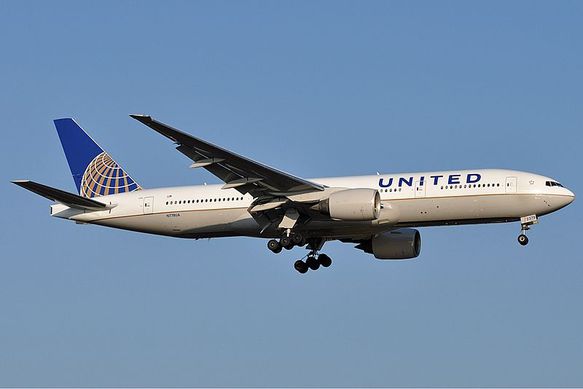Industry Insights
February 26, 2016
KCBA: Can We Drop the 'Traveling Employee' Designation?
- State: Illinois
- - 0 shares
In United Airlines v. IWCC, No. 1-15-1693WC, issued February 22, 2016, the IWCC and IL reviewing courts had another back and forth about the “traveling employee” concept. We salute the IL WC Commission and courts for getting the ruling “right.”
We caution our readers, students and others to remember out highest courts are always arguably ‘right’ because they set the law and we must respect their rulings. Perhaps the better way to analyze it is to indicate our feeling the Illinois and national business community will agree with this outcome but perhaps for different reasons.
The reason we consider the ruling odd is the words “traveling employee” don’t appear in the IL WC Act or Rules.
In contrast to our state, Florida and a few other states do have definitions of the words “traveling employee,” and such definitions are used by their administrators and courts to openly and fairly implement the legal concept. Due to the lack of any legal definition in this state, almost any decision based on the term “traveling employee” is probably a political and not legal ruling.

Like the term “traveling employee,” we assert if the IL WC Commission and Courts created a “tumbling acrobat” rule, it would also have no relevant legal definition or work comp meaning in our state.
When we see the words “traveling employee” as the subject of IWCC and reviewing court rulings, we think of silly but comparable terms like “tumbling acrobat” or “drunken stevedore” and confirm there are no similar legal rules arising from these combination terms. Like the term “traveling employee,” we assert if the IL WC Commission and Courts created a “tumbling acrobat” rule, it would also have no relevant legal definition or work comp meaning in our state.
Despite the unquestioned statutory absence of any definition of “traveling employee,” the IL Appellate Court framed their legal analysis as “The issue that we must decide is whether the claimant was a traveling employee when she injured her knee on the United flight from Denver to New York.” A layman’s answer to that simple question is easy—Claimant was unquestionably an airline employee and while flying in an airplane, she was clearly “traveling,” so why didn’t she get WC benefits? The inescapable response is their question and the whole “traveling employee” concept is, in our respectful view, logically and legally flawed. Instead of answering the question, the Court sort of analyzed the issue of what a traveling employee might or might not be but the unanimous opinion clearly reviews the accurate legal framework for all similar claims—AOO/ICO.
Arising Out Of and In the Course Of (or AOO/ICO) is the Accurate IL Legislative Analysis for Any “Traveling Employee” Claim—Please Stop Using the Political and Not Legal Term!
These terms — AOO and ICO — are defined in our law. While a child might not immediately comprehend them, to veteran WC participants, they are generally easy to understand. We urge all jurists, administrators, attorneys, risk managers, claims adjusters and everyone else to adhere to them as the proper method to analyze this claim and all similar WC claims. In this claim, the Illinois Appellate Court ruled a flight attendant was not within the course and scope of her employment when she injured herself while traveling as an unpaid passenger going to work for the airline from a New York hub.
There is no dispute Claimant worked as a flight attendant for United Airlines. She lived in Boulder, Colorado, but she worked on United flights out of their hub in New York. In September 2011, she traveled from her home in Boulder, CO to the Denver International Airport. From there, she boarded a New York-bound United flight, traveling basically for free because she worked for the company. Although Claimant was not working on the flight, she wore her flight attendant uniform to the airport and on the plane so she could more easily bypass the TSA and other security stuff that tortures the rest of us while traveling. Once Claimant was on the plane, she went into the tiny airplane bathroom and changed into normal casual clothes.
On her way back to her seat in the airplane, Isern tripped and fell, injuring her knee. We are uncertain why that description of an accident would make it necessarily compensable but it appears the Arbitrator, IWCC and both reviewing courts didn’t question initial compensability of the occurrence.
IL WC Arbitrator David Kane ruled Claimant’s injury was compensable because she qualified as a "traveling employee." He ruled a "traveling employee" is a person whose work duty required her to travel “away from the employer's premises.” Again, in the case of a flight attendant, that definition in the context of this claim is nonsensical—she was in/on the “premises of the employer” or its airplane! The Arbitrator further ruled a “traveling employee” is mystically considered to be "in the course of" her employment from the time she left her Colorado home until she returned home, and any injury sustained by a traveling employee "arises out of" her employment if she is injured while engaging in conduct that was reasonable and foreseeable. Try to contemplate how much this wildly expanded WC coverage would affect the IL transportation industry.
The Illinois Workers' Compensation Commission panel, headed by Commissioner Stephen Mathis reversed Arbitrator Kane, finding Claimant did not qualify as a “traveling employee” under the legal standard established by the IL Supreme Court's 2013 decision in Venture-Newberg-Perini, Stone & Webster v. IWCC.
Claimant appealed, and Circuit Court Judge Roberto Lopez Cepero reversed the IL WC Commission’s ruling. Judge Lopez Cepero found the Supreme Court’s rule from Venture-Newberg-Perini was inapplicable to this Claimant because that landmark decision supposedly involved a worker on a “temporary assignment” and this Claimant was somehow a “permanent” United employee. If you follow the Judge’s thinking, all construction workers would be on “temporary assignments” and they would all magically lose their purported status as “traveling employees” for that reason. Whatever a “permanent worker” might be would be then entitled to the expanded “traveling employee” WC coverage.
In considering the ruling from Judge Lopez Cepero, this Appellate Court, Workers’ Comp panel unanimously ruled the denial inVenture-Newberg-Perini applied to this Claimant. You may recall the Venture-Newberg-Perini case involved a union pipefitter who took a work assignment at a site 200 miles away from his “permanent” residence because there supposedly was no pipefitter work available locally. Please note many pipefitters are similar to gypsies and travel to their well-paid work when/where they can locate it—some of them live out of campers or their cars. Either way, Claimant in that case was not required to take the job and could have refused the assignment if his local pipefitter union had a closer position available. Claimant and a co-worker decided to stay at the Lynwood Lodge, a motel 30 miles away from the job site. Claimant made all the arrangements for his stay on his own. While traveling from the Lodge but still many miles to the job site, the worker’s auto slipped on ice and crashed. He suffered serious injuries with over $1M in medical bills from the motor vehicle accident.
After a relatively shocking decision awarding benefits from the IL Appellate Court, WC Division, the IL Supreme Court reversed and found the accident was not compensable because the pipefitter took the job and he chose where to stay at his own cost, rather than drive the lengthy distance back and forth from his home. In short, our highest court ruled the pipefitter's accident wasn’t “in the course of” employment as it occurred during his unpaid commute. We assure our readers this reversal in Venture-Newberg-Perini probably saved thousands of Illinois jobs because hundreds of employers may have left our state due to the skyrocketing costs such expanded WC coverage might have caused. We point the same criticism at the rulings of Arbitrator Kane and Judge Lopez Cepero—if you don’t understand why/how the “traveling employee” concept would kill jobs in this state, send a reply.
 In comparing that ruling to the United Airlines v. IWCC facts, the IL WC Appellate Court reasoned Claimant’s situation was not distinguishable from the worker's situation in Venture-Newberg-Perini. The unanimous ruling noted Claimant made the decision to live in Colorado, and United Airlines had no control over her choice. United also did not pay Claimant a penny for her time traveling from Colorado to New York and she had to make all the arrangements for the trip on her own. Therefore, this Court said, at the time she injured her knee, Claimant "was engaged in her regular commute from her chosen residence to the city where her job assignment was located."
In comparing that ruling to the United Airlines v. IWCC facts, the IL WC Appellate Court reasoned Claimant’s situation was not distinguishable from the worker's situation in Venture-Newberg-Perini. The unanimous ruling noted Claimant made the decision to live in Colorado, and United Airlines had no control over her choice. United also did not pay Claimant a penny for her time traveling from Colorado to New York and she had to make all the arrangements for the trip on her own. Therefore, this Court said, at the time she injured her knee, Claimant "was engaged in her regular commute from her chosen residence to the city where her job assignment was located."
It is our hope the entire IL WC matrix drops the “traveling employee” concept as challenging, confusing and a jobs-killer. The legal terms in our IL WC Act are “arising out of” and “in the course of” employment. Neither the Claimant in Venture-Newberg-Perini or this claim were “in the course of” employment. It is a lot easier for John Q. Public to understand that idea. If we were to simply follow the traditional precepts of AOO/ICO that we all generally understand, there would be no reason for Governor Rauner and his team to try to rein in the “traveling employee” concept with a legislative amendment he continues to press for in Springfield.
This post was taken from the Keefe, Campbell, Biery & Associates blog, maintained by the Chicago law firm of the same name.
Advertisements
Columns
- Montgomery: San Fran City Official Stole $627k From Workers' Comp Division 12/10/25
- Kamin: Ring the Bells for Settlement Season 12/08/25
- Paduda: Does Comp Care About Workers? 12/05/25
- Sandoval: Throwing Subrogation Under the Bus 12/03/25
- Johnson: Some Thoughts on Apportionment - And SIBTF 11/20/25
- Montgomery: State's First Responders May File Comp Claims for Trauma 11/14/25
- Snyder: Use This New Survey to Negotiate Better 11/12/25
- Holden: Workers' Compensation Act Withstands Another Constitutional Attack 11/11/25
- Gelman: Sherrill's Win Locks in Worker Protections 11/10/25
- Kamin: Newsom Promises SIBTF Reforms in 2026 11/07/25
- Kamin: Comp Costs Hit Highest Combined Ratio Since 2001, WCIRB Says 11/05/25
- Montgomery: DIR to Blow $1.25M on Another Questionable Comp Study 11/03/25
- Wroten: California Sets the Standard as New Study Links Workplace Injuries to Heat Exposure 10/29/25
- Kamin: En Banc Clarifies Policy Reporting Requirements 10/27/25
- Gelman: PTSD-Stricken Officer's Disability Claim Denied 10/22/25
- Snyder: TAG a Structured Settlement Broker 10/17/25
- Snyder: New Medi-Cal Rules Can Affect Your Settlement 10/15/25
- Fish: Guarding Against PTSD Overdiagnosis 10/10/25
- Montgomery: DWC's MPN List Disappears Yet Again 10/08/25
- Ferguson: A Tribute to Thomas Chapman Lynch 10/06/25
Now Trending
- Workers' Compensation News
-
Calif. Court: WCAB
Has Duty to Flesh Out Witness
Statements When Workers Can't…
Posted on Dec 9, 2025
-
Calif. SCIF:
Ambiguity in Disability
Accommodation Rules Could Hamper…
Posted on Dec 8, 2025
-
Calif. Court Nixes
Requirement to Add Comp Coverage to
FAIR…
Posted on Dec 10, 2025
-
Mass. Worker's
Unreasonable Conduct Delaying Case
Results in Dismissal of…
Posted on Dec 8, 2025
-
Mo. Carrier Must
Pay Bill for Worker's Knee…
Posted on Dec 11, 2025
-
Wis. Employer
Wrongfully Refuses to Rehire
Injured Truck…
Posted on Dec 10, 2025
-
N.Y. Governor
Vetoes Fraud Assessment…
Posted on Dec 9, 2025
-
N.J. High Court:
Comp Judge Can Rule on Law She
Sponsored in…
Posted on Dec 12, 2025
-
Ga. Employer Faces
$20,522 in Penalties for Worker's…
Posted on Dec 11, 2025
-
N.Y. Board's
Denial of Worker's Occupational
Disease Claim Not Supported by…
Posted on Dec 8, 2025
Jobs
- Workers' Compensation Defense Attorney (REMOTE)
- Workers' Compensation Analyst
- Workers’ Compensation Defense Attorney - 100% Remote
- In-house REMOTE Workers' Compensation Litigation Attorney
- Defense Attorneys - Remote Work Available
- Defense Attorney
- Trial Attorney - Workers Compensation Staff Counsel Workers' Compensation Jobs
Upcoming Events
Dec 13, 2025
2025 WorkCompCentral Annual Ra
This session offers 4.0 MCLE/LS and Rating Credit. Featured Speakers: Clint Feddersen, Esq.- Atto …
Mar 3-4, 2026
Save The Date! WCRI’s 2026 Ann
Registration will open up in the coming months. We'll see you there! - Leading national workers' …
Mar 5-6, 2026
DWC’s 33rd Annual Educational
Register Now! 2026 conference topics: DWC Update AI with a Claims Focus Medical and Legal Ethics …
Social Media Links
c/o Business Insurance Holdings, Inc.
Greenwich, CT 06836




No Comments
Log in to post a comment